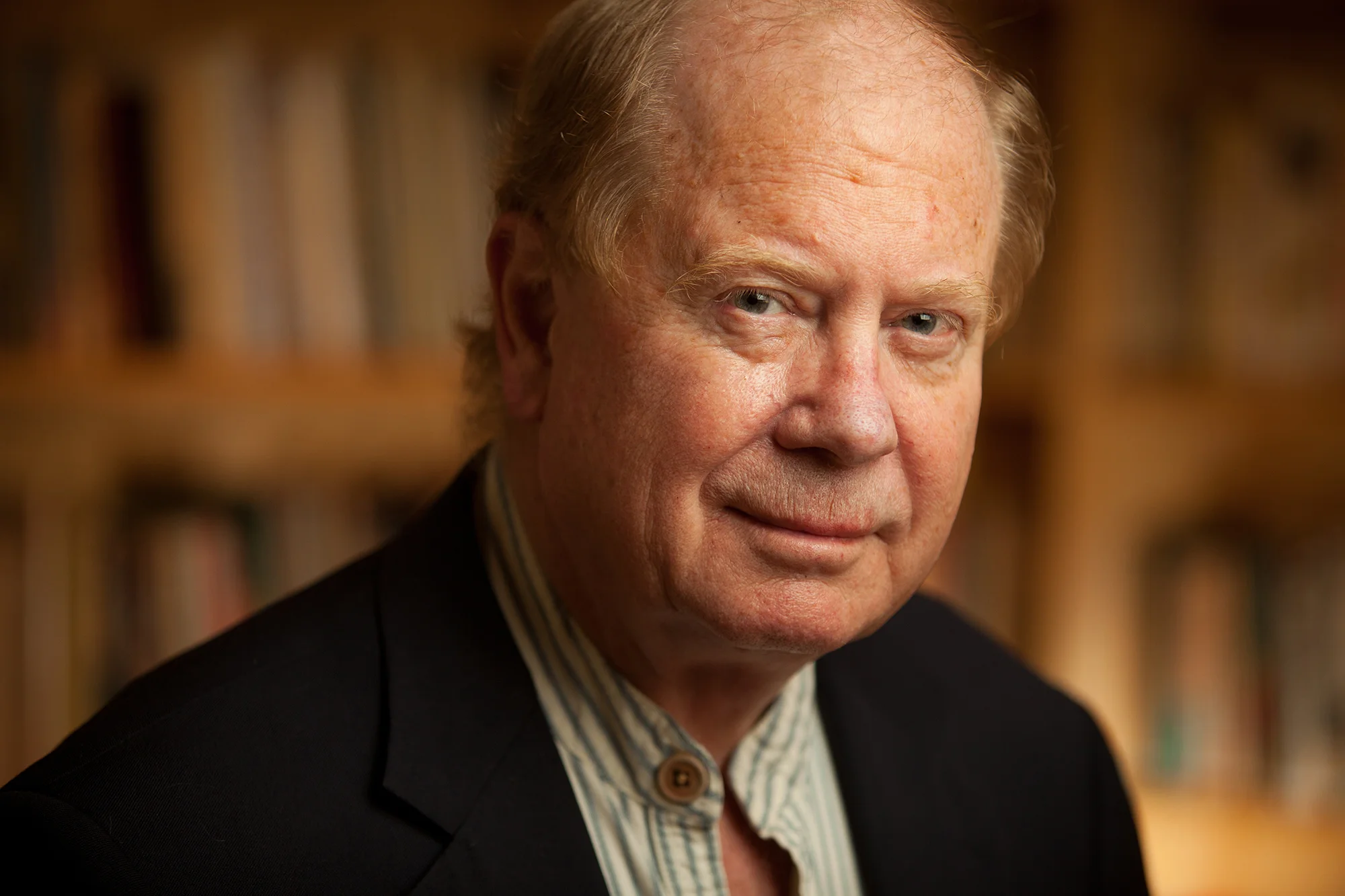“There’s a perfect alignment between Jefferson’s own contradictions and the rest of American history.”
Clay speaks with Dr. Joseph J. Ellis, author of more than ten books, including American Sphinx, Passionate Sage, and Revolutionary Summer. His forthcoming book is American Dialogue: The Founders and Us.
Further Reading
- Books by Joseph J. Ellis: Revolutionary Summer, American Sphinx: The Character of Thomas Jefferson, Passionate Sage, Founding Brothers, His Excellency, American Creation, and After the Revolution
- Thomas Jefferson by Ken Burns
- American Slavery, American Freedom by Edmund S. Morgan
What Would Jefferson Do?
“Life is the most important of our rights.”
Tune in to your local public radio or join the 1776 Club to hear this episode of What Would Thomas Jefferson Do?



Professor Joseph Ellis joins us this week for further discussion about his new book, The Cause: The American Revolution and Its Discontents. For more than two centuries, historians have debated the history of the American Revolution, disputing its roots, its provenance, and above all, its meaning. The Cause is the product of Ellis' lifetime of writing about America’s founding era. The book enlightens and challenges the story of the founding of our nation.
This week we talk with President Jefferson about the British point of view of rebellion in America which eventually led to the Revolutionary War. The conversation begins and ends with Jefferson's thoughts on Benjamin Franklin, who had been an anglophile hoping for peace between the two nations, but ended up as a leading voice for American independence.
This week in an interesting debate match, Clay Jenkinson and Joseph Ellis argue over who is the “Indispensable Man” of the American Revolution. Ellis argues for George Washington, while Jenkinson says it has to be Jefferson. A very wise listener suggests that they are both wrong: it’s Benjamin Franklin.
"The French ... thought it was an assassination, a war crime, that Washington was a murderer."
— Peter Stark
We speak with Peter Stark, author of Young Washington: How Wilderness and War Forged America’s Founding Father.
We discuss George Washington’s formative years and character traits, his travels into the Ohio country, and his relationship with lieutenant governor Robert Dinwiddie. We talk about how Washington’s involvement in the Battle of Jumonville Glen touched off the French and Indian War.